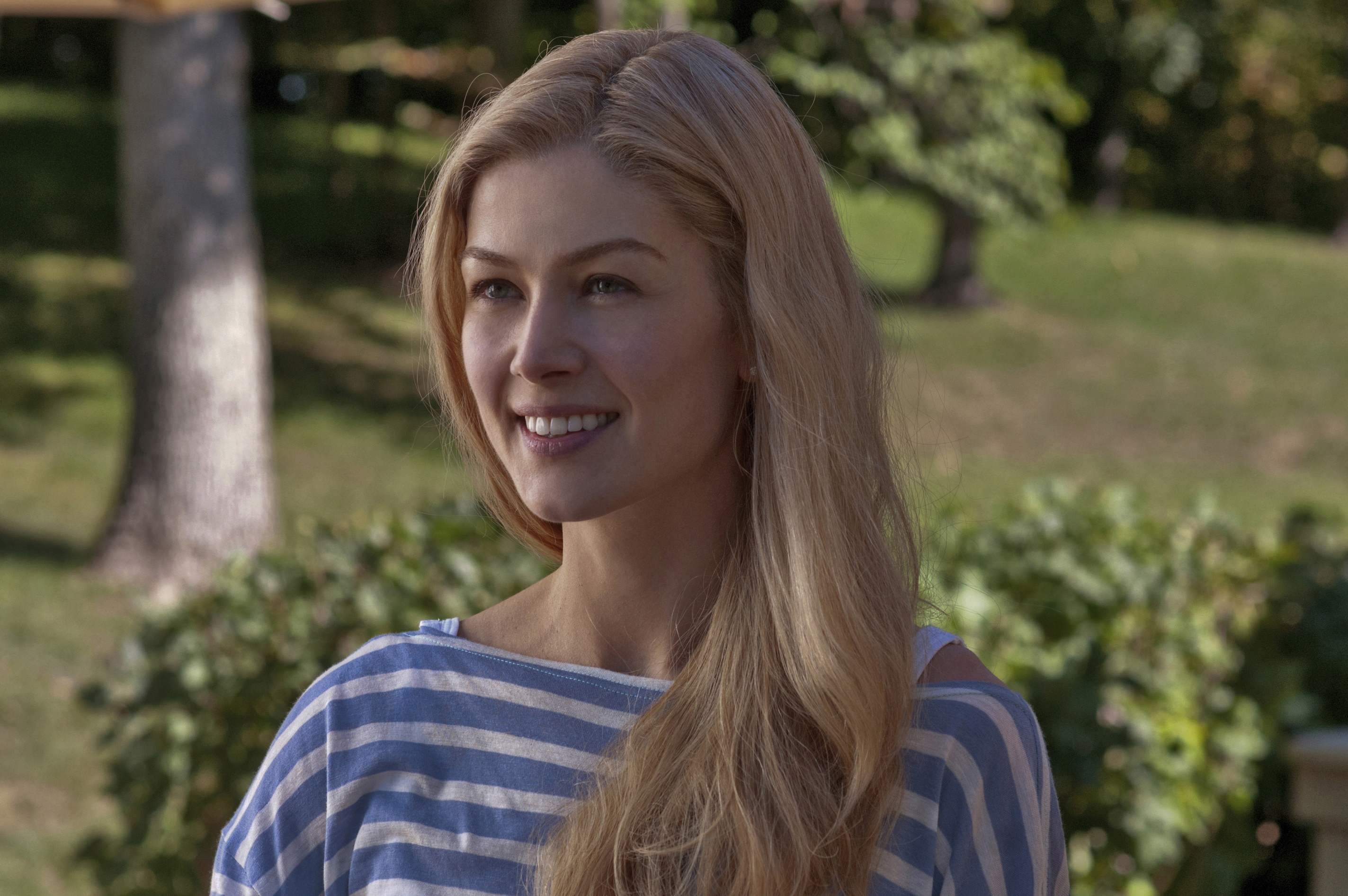Likable characters are a curse in Hollywood. Studios want someone relatable, someone personable, someone who looks friendly on the cover of Us magazine. What the movies emphatically don’t like is a dour mug like Nick Dunne (Ben Affleck) staring at them on a tabloid TV show: five o’clock shadow, dimple, a drinker’s saggy eyes, unsmiling and seemingly unloving about his missing (and presumed murdered) wife Amy (Rosamund Pike). What’s exceptional about Gillian Flynn’s adaptation of her 2012 novel, directed with acid fidelity by David Fincher, is that Gone Girl doesn’t like most of its characters either. Those who aren’t sociopaths are numbskulls or clowns. Ozark hillbillies and TV hucksters stroll through the action, along with nitwit trust-funders and desperate housewives.
What’s to like? Who’s to like? And where to start with a movie brimming with plot twists and sudden reversals of perspective? For those like me who didn’t read Flynn’s bestseller, I’ll say that the small-town Missouri police investigation (led by Kim Dickens, from Treme and Sons of Anarchy) goes entirely against Nick for the first hour. He behaves like an oaf and does most everything to make himself the prime suspect, despite wise counsel from his sister (Carrie Coon) and lawyer (a surprisingly effective, enjoyable Tyler Perry).
Second hour, still no body, but flashbacks turn us against the absent Amy. (Here the English Pike, of the current Hector and the Search for Happiness, gets to try on a New Orleans accent and embrace her inner trailer-park diva.) Fincher takes his time with the story—probably too much time for those expecting a straightforward thriller. He’s a famous crime-procedural perfectionist (e.g. Seven and The Girl With the Dragon Tattoo) not much known for a sense of humor, so the perverse levity I’ll attribute to Flynn. As we slowly investigate the Dunnes’ very flawed marriage, funny little kernels of bile begin to explode underfoot. Control-freak Amy, as it turns out, was precisely plotting against Nick with colored Post-It Notes. And Nick, when red panties are found in his college office, can’t be sure if they were left by his wife or an amorous student. How the hell did these two end up together?
Flynn’s foundational joke answers that question with a satire of marriage. The movie poster and tabloid-TV plot suggest a standard I-didn’t-kill-my-wife tale, but matrimony is what’s being murdered here. Role playing and mundane daily deceptions— “No, honey, your breath doesn’t stink in the morning”—are integral to the daily maintenance of the nest. Then, scrutinized by the media circus, all those necessary little lies begin to look pathological. Nick becomes the scorned sap because of his untruths; but what really damns him in the movie’s intricate plot is his credulity—he believed in Amy too much. And here let’s add that Flynn has clearly studied the dark, twisty movies in which Barbara Stanwyck and Fred MacMurray used to star in the ’40s. Shades of Laura hang over Amy’s ghostly televised image, too.
Gone Girl is all about manipulation—Fincher’s stock in trade, really, which helps make the film such cynical, mean-spirited fun. It’s not Coen Brothers-funny, but black humor helps mitigate the late-film geyser of blood. (There’s only one body in the film, and not the one you expect.) In a key, creepy role, Neil Patrick Harris gets to coin a new catchphrase with “Octopus and Scrabble!” And Flynn lets Nick and Amy supply the movie’s motto: “All we do is cause each other pain.” “That’s marriage.” Opens Fri., Oct. 3 at Sundance, SIFF Cinema Uptown, and other theaters. Rated R. 145 minutes.
bmiller@seattleweekly.com









